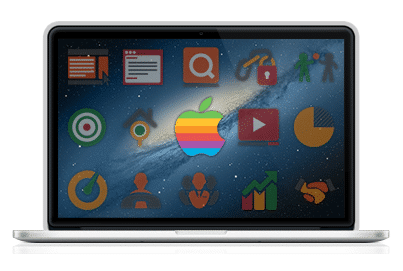Marketing involves a lot of project management. Trello makes that easier. The feature that really helps with marketing tasks is the checklist you can add to cards. If you create a checklist for your most common marketing tasks, you can save time and reduce errors. In-app advertising is an effective monetization strategy for mobile publishers, in which app developers get paid to serve advertisements within their mobile app. Not only do apps drive mobile usage — they also drive global media consumption. This makes in-app advertising a vital marketing.
There are tons of money to be made from app development. This ranges from the paid apps’ initial sale to in-app purchases. Several companies find it suitable to utilize a mobile advertising platform to monetize their apps in order to multiply their investment. You probably have several advertising platforms for your app to select from; however, the challenge to this is that you have no idea where to begin.
This happens often to most app developers and budding entrepreneurs, which is why some professionals shortlisted top-notch information to offer those who are facing trouble choosing, to make a decision. Here is a list of the top 9 best app advertising platforms guaranteed to bring you optimum revenue.
1. Tapjoy
All top mobile game developers might want to consider Tapjoy. This is because it has experience with in-app purchases, which is among the most utilized way of achieving optimum app monetization. Undoubtedly, Tapjoy takes the lead in the gaming domain. What do mobile gamers do when they are asked to pay just to finish a game? Some pay up, most gamers quit. In order to avoid this, Tapjoy has introduced incentivized downloading by providing gamers the prospect of earning virtual currency by partaking in real-world actions.
This in turn enables them to get awarded in the virtual world through access to premium content in over 20,000 games to the present day in the Tapjoy network on more than a billion devices.
2. AdMob
AdMob is among the most commendable advertising platforms presently available. It is sometimes referred to as ‘the child of a search engine giant, Google’. It has gained its reputation from its enormous advertisers’ network. Also, the fact that it is owned by Google, which is also reputable and renowned, is a major plus for this platform.
READ ALSO: Why Android is better than iOS
With the vital part to Google’s success being coding, AdMob SDK offers coherent software development tools for app developers to link popular mobile programs such as Windows Phone, iOS and Android. To top it up, AdMob has an elevated CPC to aid users get the leading ROI.
3. Aditic
Aditic is a prime mobile advertising network that was established and is owned by a mobile marketing company called Sofialys. Aditic offers support in various platforms including Blackberry, Android, Java, iOS, and Samsung Bada.
4. Millennial Media
Millennial Media is renowned for being the chief mobile advertising network, which climbed its way to the next level via the first public offering. Millennial Media acts as both a campaign platform and marketplace. For someone looking to quickly and easily structure a campaign for advertisers to rival for their business, the Millennial Media Platform offers affluence of intelligence and research for that particular use. In addition, it also provides users with a systematic dashboard from which they can obtain reports of all transactions such as date ranges, pacing, targeting, and pricing.
Millennial Media offers enormous deals to mobile developers, individual development teams, and game publishers. It allows advertisers to display ads from other networks via their Ad Network Mediation support system.
One can assign traffic across networks based on CPM. This is doable by utilizing location, revenue, and percentage. Through this platform, one has the ability to cross-promote their apps within its own application. Millennial Media is by far the best combination of advertising and monetization for your app according to experts. This is due to its flexibility.
5. Byyd

It was initially known as Adfonic but was recently re-branded to Byyd. Byyd provides approximately 95% fill rate for iOS and Android platforms. With their main focus on rich media ads, Byyd provides advertising platforms for big brands and corporations such as ESPN, Samsung, and Amazon. One great major advantage to Byyd is that one has the means to structure and manage several accounts.
6. Chartboost
Advertising Apps For Free
Most gaming app developers opt for the Chartboost ad platform because of its commitment to serve gaming ads with integrated serves and built-in analytics ads, basically to accomplish your cross-promotional marketing campaign needs. This means that you can obtain more particulars on what a user is doing with your game.
Chartboost platform has several creative solutions that are intended for the heavy utilization of app marketing in a professional manner. Since the targeted audiences are already present and playing the game, and are always looking for the next fun gaming app, the ads displayed are basically about the downloading of new gaming apps and cross-promotion. The best thing about Chartboost is that it only takes 5 coded lines to begin.
7. AppLovin
AppLovin serves requests for over 7 billion ads every single day together with 10 terabytes of user data. It allows you to provide your users with personalized recommendations as well as selected promotions and other benefactions.

8. Flurry
The main vision of Flurry is to make your app flourish in these new economic times. Their main goal is to generate as much revenue as possible for your app based on app monetization. Its crew Flurry has assembled a magnitude of user data set in relation to global consumer usage, from over 700 million smartphones and other mobile devices as well.
Furthermore, it utilizes cutting edge analytics to elevate your ad to the right position and at the right time. Flurry is used for takeover, video ads, and interstitial on Android and iOS. However, do you know what is Android Boilerpale?
9. Vungle
Contrary to what the majority of people believe, users don’t find all ads are boring. For instance, think about all the people who are attentive to the astonishing ads that air during events such as the Super Bowl. Vungle is committed to aiding you to convert your app into engaging and captivating video ads, which will keep your end-users fixated on it.
With so many app monetizations and app advertising platforms out there, mobile advertising can sometimes become daunting. However, the above-compiled list of the top 9 app advertising platforms should make the selection process easier. Each of them offers a unique take on app monetization to increase revenue for developers.
Now, you are almost ready to make your app popular.
Want to receive reading suggestions once a month?
Subscribe to our newsletters
The global mobile advertising market will hit two significant milestones in 2016, according to new figures from eMarketer, surpassing $100 billion in spending and accounting for more than 50% of all digital ad expenditure for the first time.
The $101.37 billion to be spent on ads served to mobile phones and tablets worldwide next year represents a nearly 430% increase from 2013.
Based on this information, we can see that the mobile advertising market will continue to grow and releasing applications with built-in advertising will become more profitable.
But before you drop everything and run to make the application, you need to understand how the mobile advertising works, and which parameters affect on your app revenue.
In our current example we calculate revenue for app with 100k users.
So, let’s start our calculations:
Revenue = Impressions x eCPM
Impressions - the number of impressions of an ad on the advertising platform.
Advertising Apps
A 2012 Stanford Venture Lab presentation notes that 90 percent of 100,000 users install the app and then delete it after about five minutes of use.
100,000 x 0,9 = 90,000
About 80 percent of these have an Internet connection needed to download ads.
90,000 x 0,8 = 72,000
For an ad display to count as an impression, it has to be up for 30 seconds, so that's 2 impressions per minute.
72,000 x 5 = 360,000 minutes * 2 = 720,000 impressions
eCPM - eCPM means “Effective Cost per Mille.”
Mille in Latin is defined as 1,000. In terms of mobile advertising, eCPM translates to the advertising revenue generated per 1,000 impressions.
To calculate eCPM we use formula:
eCPM = Total Earnings / Total Impressions x 1,000
For example, lets say in one of your apps you have shown 100,000 ads and this has earned you $200 in advertising revenue. Plugging these numbers in the above formula will give an eCPM of $2.
Now, we can calculate revenue from our app:
Revenue = (720,000 / 1000) * (eCPM per 1000) = 720 * 2 = $1,440
It is the easiest way to calculate the expected revenue. But he is imprecise and provides only approximate values.
To improve the accuracy of the calculations we add “Fill Rate” parameter to our formula.
Fill Rate - the number of times an ad was shown to users (impressions) compared to the number of times an ad was requested from a specific ad source (requests).
Fill Rate = number of ads delivered / number of ad requested
For example, if from 100,000 delivered ads 5,000 not displayed, the fill rate will be:
Fill Rate = (100,000 - 5000) / 100,000 = 0,95
Then, our expected revenue will look like this:
Revenue = (720,000 / 1000) * (eCPM per 1000) * Fill Rate Revenue = 720 * 2 * 0,95 = $1,368
Today that's all we wanted to tell you.
Feel free to ask us a questions in the comments, if you don't understand something in calculations or need more information.
Thank you for reading us,
Stay in touch,
Sincerely yours,